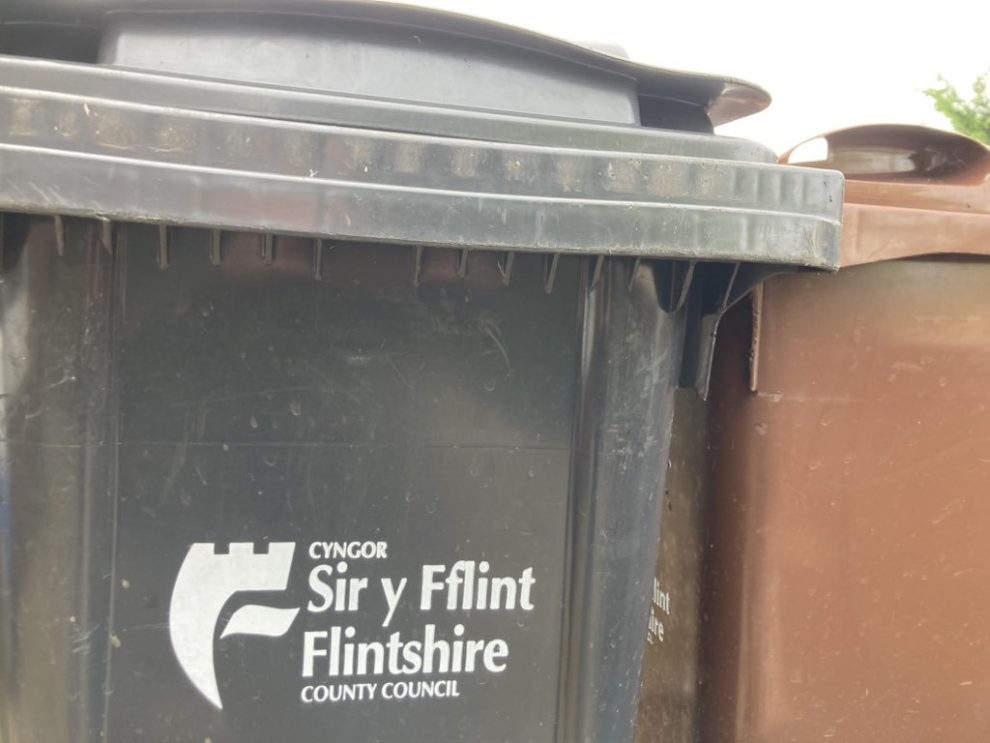FLINTSHIRE residents could be faced with reduced black bin collections or storing rubbish in smaller containers in a bid to improve recycling rates.
Flintshire Council is proposing a shake-up of its waste strategy after being threatened with a fine of around £1m for failing to met Welsh Government targets.
The devolved government currently expects local authorities to achieve a recycling rate of 64 per cent, but Flintshire did not reach the goal during the last two financial years.
In January last year, the council’s ruling Labour cabinet backed a move to trial three-weekly bin collections in part of the county to see if it would improve recycling rates.
However, plans to move away from the current fortnightly arrangement were later paused after the decision was challenged by the opposition independent group, whose members said it would be “unfair” on residents.
The prospect of changes to bin collections has now reared its head again as the government’s recycling target is set to increase to 70 per cent for the next financial year.
A senior council official said action was needed to avoid the risk of further fines from ministers in Cardiff Bay.
In a report going to backbench councillors next week, Katie Wilby, chief officer for streetscene and transportation, said: “We have continually reported that the council faces significant fines for not achieving the statutory recycling targets for 2021/22 and 2022/23.
“The targets increase further from April 1, 2024 and the council faces further fines per annum on current recycling levels which could exceed £1m annually.
“On review of our waste strategy in early 2023, officers made it explicitly clear that without significant service changes we were unlikely to achieve the statutory targets in future years.
“(This is) due to the high volumes of recyclable items being placed in the residual waste bin that could have been collected via the weekly recycling collection service or at the household recycling centres.
“Cabinet made the decision not to make any changes to the waste strategy, but to appeal to residents to increase their recycling and undertake a further period of monitoring to see if rates could be achieved through education and enforcement alone.”
The council recently held a consultation with residents over the strategy which received more than 5,300 responses.
While most people supported the measures to improve recycling rates, views were split on plans to either reduce the frequency of collections or make black bins smaller.
A total of 1,891 respondents said they either disagreed or strongly disagreed with the proposals, compared to 1,796 who either agreed or strongly agreed, while a further 783 said they were undecided.
Ms Wilby said: “While there were varied views as to whether these measures would help our residents recycle more, each one of these actions is key to achieving deliverability of five of the objectives that were strongly supported.
“Due to their significance in achieving our overall aims, these actions have been retained in the strategy.”
The Welsh Government’s Minister for Climate Change has yet to decide whether to fine the council over its previous failures to meet targets.
However, the report shows that Labour’s Julie James rejected the proposals put forward by cabinet members last year as they did not show enough commitment to achieving the goals.
Data published by the authority shows that 58 per cent of waste currently put in black bins by residents in Flintshire could be recycled.
In 2022/23, the figure equated to 13,410 tonnes of material that could have been recycled, of which just under half was food waste.
Ms Wilby said public support was needed from people in the county to achieve the recycling targets.
She said: “The council supports the declarations made by Welsh Government for the public sector to become net zero by 2030.
“Unsustainable consumption of precious resources and waste disposal has a significant impact on our environment and cannot be decoupled from its impact on our climate.
“We cannot make the required step changes alone and a collective effort from residents, the workforce and the wider community will be essential to reduce consumption and improve our recycling performance.”
Members of Flintshire’s environment and economy scrutiny committee will be asked to back the strategy when they meet on Tuesday (March 5, 2024).
If adopted, the report states that a report will be taken to cabinet members in June, outlining plans for a “restricted capacity residual waste collection model”.
The strategy will also need to be presented to the Welsh Government for consideration.


















